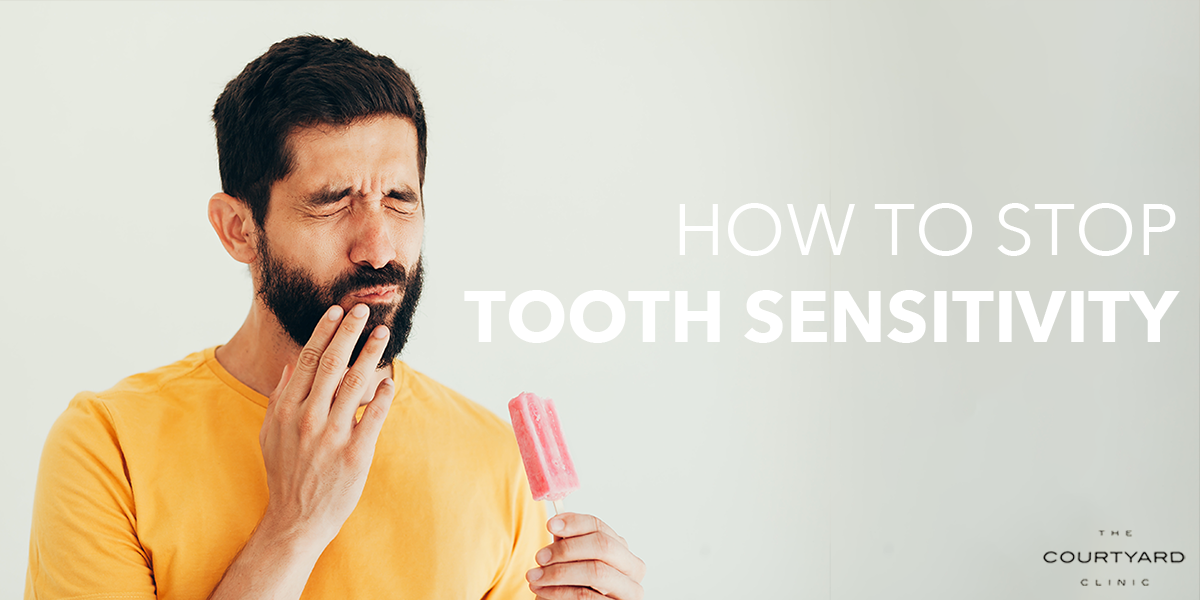Do you find when you drink a hot drink, or eat very cold foods (such as ice-cream) that you wince or get pain in your teeth? This is fairly common and is due to teeth sensitivity. It’s not just temperature that can cause this reaction, these pains can also occur when eating something sour or very sweet, or when you bite down on something. Fortunately, sensitivity can be helped both at home, and in the clinic. In this short post, we’re going to outline some of the different causes of tooth sensitivity, a few at-home remedies as well as some dental treatments that are commonly used to treat it…
What Causes Sensitive Teeth?
There are many different causes of sensitive teeth. Typically, sensitivity occurs because the protective enamel of the tooth has been damaged or eroded, leaving the dentine of the tooth exposed. This indirectly exposes the tooth’s nerve, hence causing the pain. Other causes of sensitivity include: tooth decay, tooth fractures, gum disease, aggressive brushing, damaged fillings and tooth rot.
How To Stop Tooth Sensitivity At Home
When it comes to treating sensitivity at home, there are a few things people can do to reduce the discomfort they experience. The most common solution is a desensitizing toothpastes. These contain active ingredients that help to treat the sensitivity in different ways. One such ingredient is fluoride. This helps strengthen the enamel, which as earlier mentioned, is often linked to the cause of the pain.
Other techniques to try when treating sensitivity at home include; using a soft toothbrush, avoiding highly acidic foods and using a fluoridated mouthwash. Sensitivity can also be caused by grinding the teeth. If you know you do this, investing in a mouth guard can go a long way to help your teeth.
Dental Treatments for Tooth Sensitivity
If you find that changing your toothpaste and other parts of your oral hygiene routine doesn’t solve the issue, there are a few different treatments we can offer here at The Courtyard Clinic.
- Fluoride gel or varnish. This is a very simple treatment that we can do chair side to help strengthen the enamel of your teeth, at a stronger level than that of toothpaste.
- Dental restoration. Treatments can include crowns, inlays or bonding to fix an area of decay that is causing the sensitivity.
- Gum graft. If gum tissue has been lost from the root, a gum graft will protect the root and reduce sensitivity.
Tooth sensitivity is common and can be treated in a variety of ways. If you have any questions about different types of treatment or remedies, please don’t hesitate to get in touch with a member of the team who will be more than happy to help!


